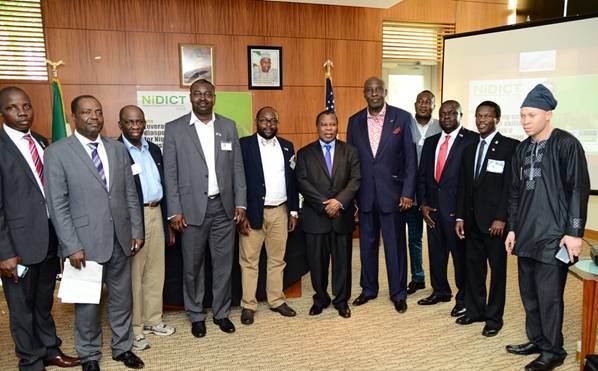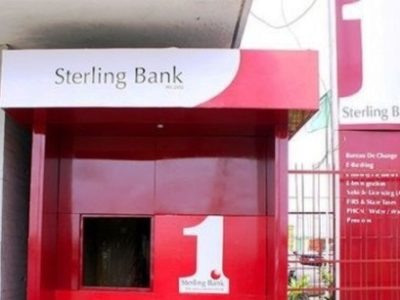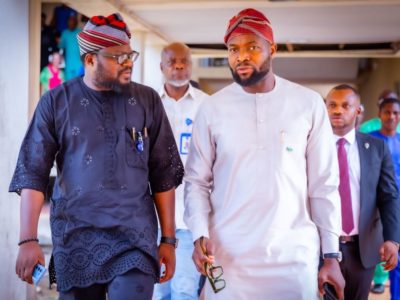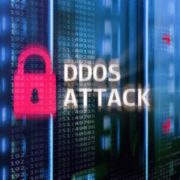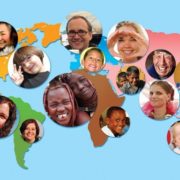By Segun Oruame
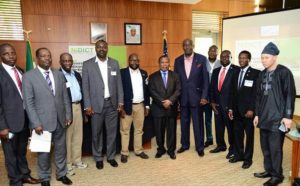
Some participants at NiDICT 2015 with His Excellency (Prof.) Adebowale Ibidapo Adefuye, Nigeria’s Ambassador to the USA.
How Nigeria can leverage on the ready expertise of Nigerians in diaspora to strengthen the country’s ICT sector and how to ensure diversification of the economy away from reliance on oil and gas exports formed the fulcrum of delegates’ meeting at the second Nigeria Diaspora Information Communication Technology (NiDICT) Conference. The conference held recently inside the Embassy of Nigeria, Washington DC, United States of America.
“It is my belief that interactions such as this provide positive platforms for Nigerians abroad and nationalities of other countries to have a first-hand view of the country’s great potentials and efforts being made by government to support investments back home. Nigeria has remained steadfast in encouraging growth across various sectors of the economy,” said His Excellency (Prof.) AdebowaleIbidapoAdefuye, the Nigeria’ Ambassador to the USA in his opening remarks.
Earlier before the official commencement of deliberations, Director General of the National Information Technology Development Agency (NITDA), Mr. Peter Jack had commended the organizers of the conference and affirmed the commitment of the Nigerian government through the NITDA to ensure adoption of digital technologies in all spheres of the economy. Jack also affirmed: “The commitment of government through the NITDA to encourage skill development, adoption and local production of ICT tools through multi-stakeholders approach that would engage Nigerian experts and entrepreneurs resident abroad.”
The NiDICT delegates deliberating under the 2015 Conference theme: ‘Leveraging on Diaspora Skills-Pool for Nigeria’s Transformation’, reaffirmed that Nigeria remains African largest democracy and most liberalised telecommunications market in the continent. The country offers the biggest portfolio of opportunities for in-country and outside investors, for which Nigerians in Diaspora may leverage on.
“There is also a window of opportunity in the area of capacity building and development. As we all know that the Nigerian telecoms sector is still an emerging one therefore there is an urgent need for Nigerian diaspora to latch on this window of opportunity. This could be achieved by partnering with NCC and ATCON,” said President of the Association of Telecommunications Companies of Nigeria (ATCON), Mr. LanreAjayi who presented a paper on ‘Investment Opportunities in the Nigerian Telecommunications Industry for Nigerian Diaspora in the United States of America.
Nigeria through institutions such as the NITDA and the Nigerian Communications Commission (NCC) have helped to set the tone for investment in the ICT sector through right policy actions. His words: “ATCON’s focus of discussion at every international ICT event is simply to woo foreign investors in order to take advantage of the opportunities presented by the broadband business in Nigeria. It would interest you to know that Nigeria currently has over 140 million subscribers with 96% teledensity and over 74 million internet subscribers connected via narrow bands and the Nigerian Communications Commission has adopted a global best practice in terms of regulating the industry and this has become an inspiration to many African countries who often come to Nigeria to understudy the processes. Nigerians in diaspora cannot but leverage on all these opportunities”
The conference also raised concerns that the country’s inability to locally manufacture ICT equipment would deny it the full benefits of that sector as the country risks becoming solely an ICT consuming nation. “There is an urgent need to promote local content through partnerships aimed to achieve the development of local skills, technology transfer as well as the utilization of our locally available raw materials to improve the quality of output, provide self-sufficiency and be competitive at the world market,” said Director-General/CEO of the RMRDC, Dr. HussainiDoko Ibrahim.
“Over the past decade, Nigeria has become the largest and one of the most vibrant telecoms markets in Africa due to primarily rapid growth in the mobile segment of the ICT sector. Unfortunately, economic value generated locally with the imported technology used by Nigerians is very low due to very low number of technology experts and low level of patronage of locally produced ICT products, hardware and software,” added Dr. Ibrahim who was represented by Director of Planning and Policy Development Department, Dr. ZainabHammanga.
Among the other ICT and Investment topics discussed in the NiDICT Conference were cloud computing and Smart State Initiative, Cybersecurity, and Radio Frequency Identification. Participants enjoined government and all stakeholders at home and in the diaspora to collaborate and promote cost-effective solutions/approaches that will improve Nigeria’s global presence in this new and growing fields of ICT.
The NiDICT conference drew attendance from representatives of the NITDA,the Association of Telecommunications Companies of Nigeria (ATCON), Raw Materials Research and Development Council (RMRDC), the Nigeria Computer Society (NCS), the Nigerian diplomatic community in the USA led by His Excellency (Prof.) AdebowaleIbidapoAdefuye, members of Nigerian academia and industry in diaspora; university communities including those from Covenant University and University of Michigan, Detroit, members of the media including Channel TV (USA), News Agency of Nigeria (NAN), and IT Edge News.
The Nigeria Diaspora ICT Conference (www.nidict.org) is a gathering of major ICT stakeholders from Nigeria, USA, and Canada interested in exploring opportunities; fostering trust and building partnerships in the ever growing ICT sector. It brings together decision makers in Government, Private Sector Entrepreneurs, Professional Associations, Angel Investors and leading lights in ICT across the three countries to provide and share insight on business, technology and development.
The first Nigeria Diaspora Information Communication Technology (NiDICT) Conference held in Detroit, Michigan, USA. NiDICT is owned and organized by Pinnacle International Consulting (USA) and Knowhow Media International (Nigeria) with the support of stakeholders from the public and private sectors.

